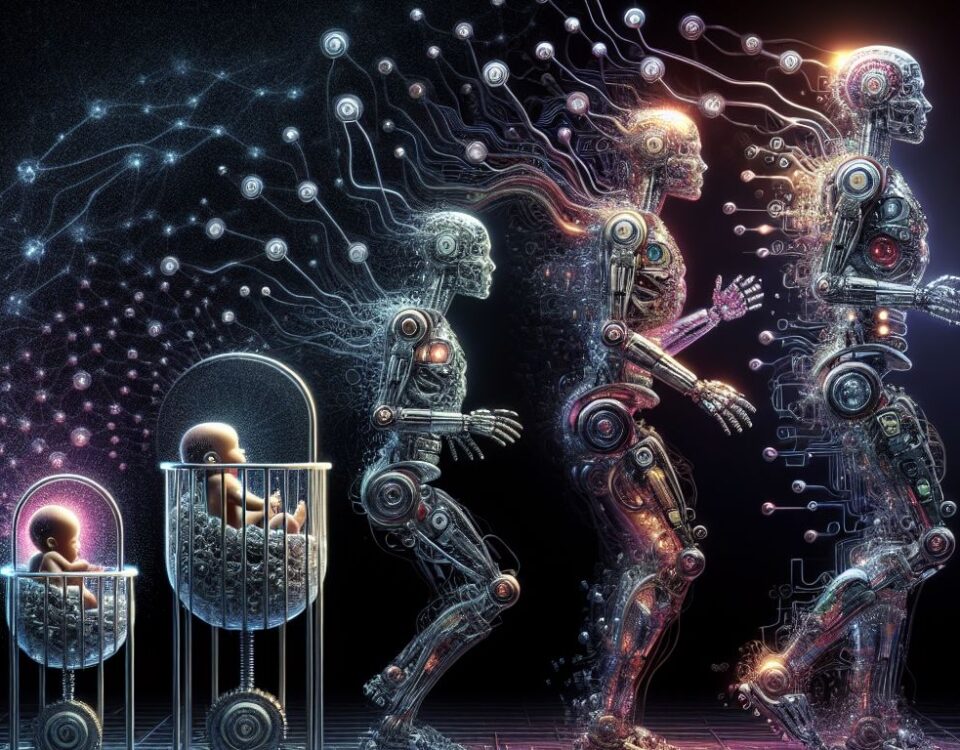
How AI Voice Assistants Are Turning Marketing Tactics Upside Down
In a world where voice-enabled AI assistants like Siri, Alexa, and Google Assistant are becoming increasingly popular, marketers are left to wonder how these new technological advancements will affect their approach to advertising. In this article, we’ll discuss the impact of these AI voice assistants on both consumers and businesses, as well as outline some impressive (and hilarious) examples of AI marketing.
The Rise of Voice-Enabled AI Assistants
Gone are the days when shouting at a device was reserved for moments of frustration – nowadays, it’s become the norm. With more people introducing smart speakers and voice-enabled AI assistants into their homes, the identity of the average consumer is rapidly changing. As of 2021, over 25% of American households own a smart speaker, and that number is expected to rise.
Marketers need to adapt and adopt new tactics to engage with customers who are spending more time talking to their AI assistants than typing on their keyboards, impacting not only advertising content but also the very nature of SEO and the way information is accessed.
Reinventing Advertising with AI
Voice assistants offer a unique opportunity for brands to engage with their audience. Ads can be tailored to the user’s preferences, location, and history to create a personalized, engaging experience. Voice search queries are typically longer and more conversational, allowing businesses to adopt a more natural tone in their marketing campaigns.
However, there are new challenges to navigate this landscape. Since voice assistants don’t serve up a long list of search results like a traditional Google search, brands will be vying for the coveted position of being the top suggested site, product, or service. This competition will undoubtedly intensify as more brands invest in voice marketing.
AI-Generated Humor and Missteps
On a lighter note, while AI is revolutionizing the marketing world, it still has some kinks to work out. For example, when asked to tell a joke, Microsoft’s Cortana once stated, “Why did the chicken go to the séance? To get to the other side.” While it’s certainly creative, humor remains a tough nut to crack for AI. In another instance, a consumer asked an unnamed voice assistant if it could recommend a local bar, only to be bombarded with statistics and fun facts about giraffes instead. These amusing stories demonstrate that, despite the advancements in AI, human touch remains invaluable, especially when it comes to humor and empathy.
The Future of AI and Voice Marketing
As voice-enabled AI assistants become even more sophisticated and integrated into our daily routines, marketers will need to develop innovative ways to capture and retain the attention of consumers. It’s essential to understand and embrace the power of AI in marketing strategies while acknowledging its limitations and the need for a human touch.
In the end, the mingling of AI and marketing promises exciting opportunities for brands and developers alike. And who knows, maybe one day we’ll find ourselves raising a glass at a bar with Siri, Alexa, and Google Assistant, toasting to the ever-evolving world of AI and voice marketing. Cheers!
Get the power of AI for your marketing campaigns
Simplify campaign management and maximize results with AdMind. Create high quality content, generate images, integrate digital channels, automatize editorial plans, track performance, and optimize for maximum success.
More AI-Marketing News
Subscribe to unlock the power of AI-driven content marketing and to get free stuff!
I read and accept the Privacy Policy.








